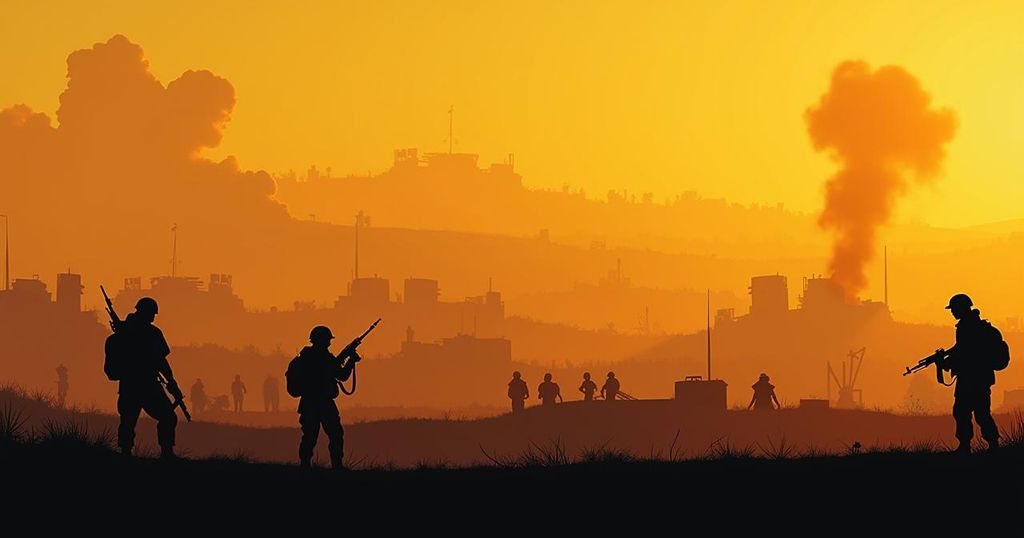Escalation of Conflict: Israel’s Ground Operation in Southern Lebanon
Israeli troops have infiltrated southern Lebanon to dismantle Hezbollah’s military structures, following a significant escalation of conflict that includes attacks on the militant group and increased hostilities in Gaza. The situation is rooted in long-standing geopolitical tensions, with the U.S. continuing to support Israel amidst international calls for humanitarian efforts in Gaza.
Israeli ground forces have advanced into southern Lebanon as part of a military operation aimed at dismantling Hezbollah’s military capabilities in border regions. The Israeli Defense Forces (IDF) characterized this incursion as a “limited, localized and targeted” initiative, supported by aerial assaults and artillery bombardment. This development marks a significant escalation in the ongoing conflict with Hezbollah, arising from weeks of heightened tensions that included attacks on the militant group’s electronic infrastructure, the assassination of its long-standing leader, and intensified airstrikes against Lebanon. The broader context encompasses the Israel-Gaza war, which has seen prolonged violence since October 7, when Hamas militants conducted an extraordinary cross-border offensive that resulted in the deaths of approximately 1,200 individuals and the capture of civilians, including those attending a music festival. Israel’s consequent declaration of war on Hamas has resulted in unprecedented levels of displacement across the region, the greatest since the formation of Israel in 1948. In July 2024, an attack attributed to Israeli forces led to the death of Hamas leader Ismail Haniyeh, further escalating tensions. Within the Gaza Strip, the ongoing conflict represents one of the most devastating military operations of contemporary times, decimating tens of thousands of lives and thrusting nearly half the population into conditions akin to famine. The Israeli government has faced mounting pressure from Western allies to increase humanitarian assistance to the beleaguered enclave, but has persistently resisted such calls. The role of the United States remains integral amidst these conflicts. Despite certain frictions between Israeli Prime Minister Benjamin Netanyahu and various U.S. politicians, including President Biden, the United States has continued to provide critical support to Israel in the form of military weaponry, financial aid packages, and has largely abstained from or vetoed United Nations resolutions aimed at achieving ceasefire agreements. The historical roots of the Israeli-Palestinian conflict are deeply intricate, originating long before the establishment of the Israeli state in 1948. The timeline of hostilities along the Israel-Lebanon border continues to evolve as violence and instability prevail.
The ongoing conflict between Israel and Hezbollah is part of a broader and complex geopolitical landscape in the Middle East, heavily influenced by the longstanding Israeli-Palestinian tensions. The latest escalation follows months of combat in the Israel-Gaza region after a major attack by Hamas in early October 2023. The situation has raised concerns about humanitarian crises, regional stability, and international diplomatic efforts to broker peace amidst decades of violence and mistrust. As these conflicts unfold, the role of external powers like the United States significantly shapes the military and humanitarian dynamics in the region.
In conclusion, the current military actions by Israeli forces in southern Lebanon represent a serious escalation in the broader conflict involving Hezbollah and the ongoing Israel-Gaza war. The implications of these events could be profound, potentially altering regional stability and the humanitarian situation for millions. With the background of a complex historical context, the situation demands close attention from the international community as tensions continue to rise.
Original Source: www.washingtonpost.com




Post Comment